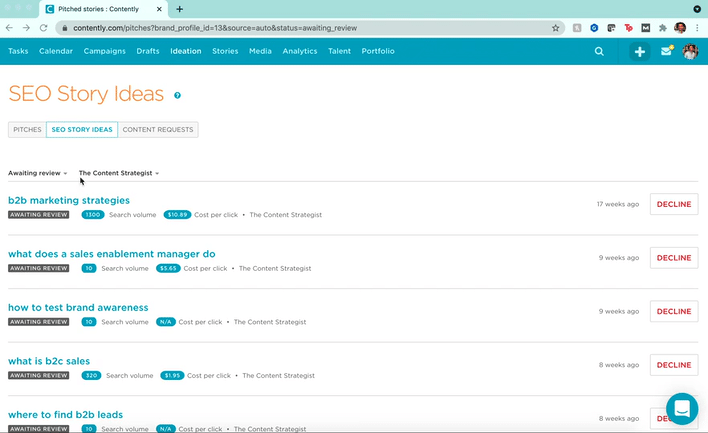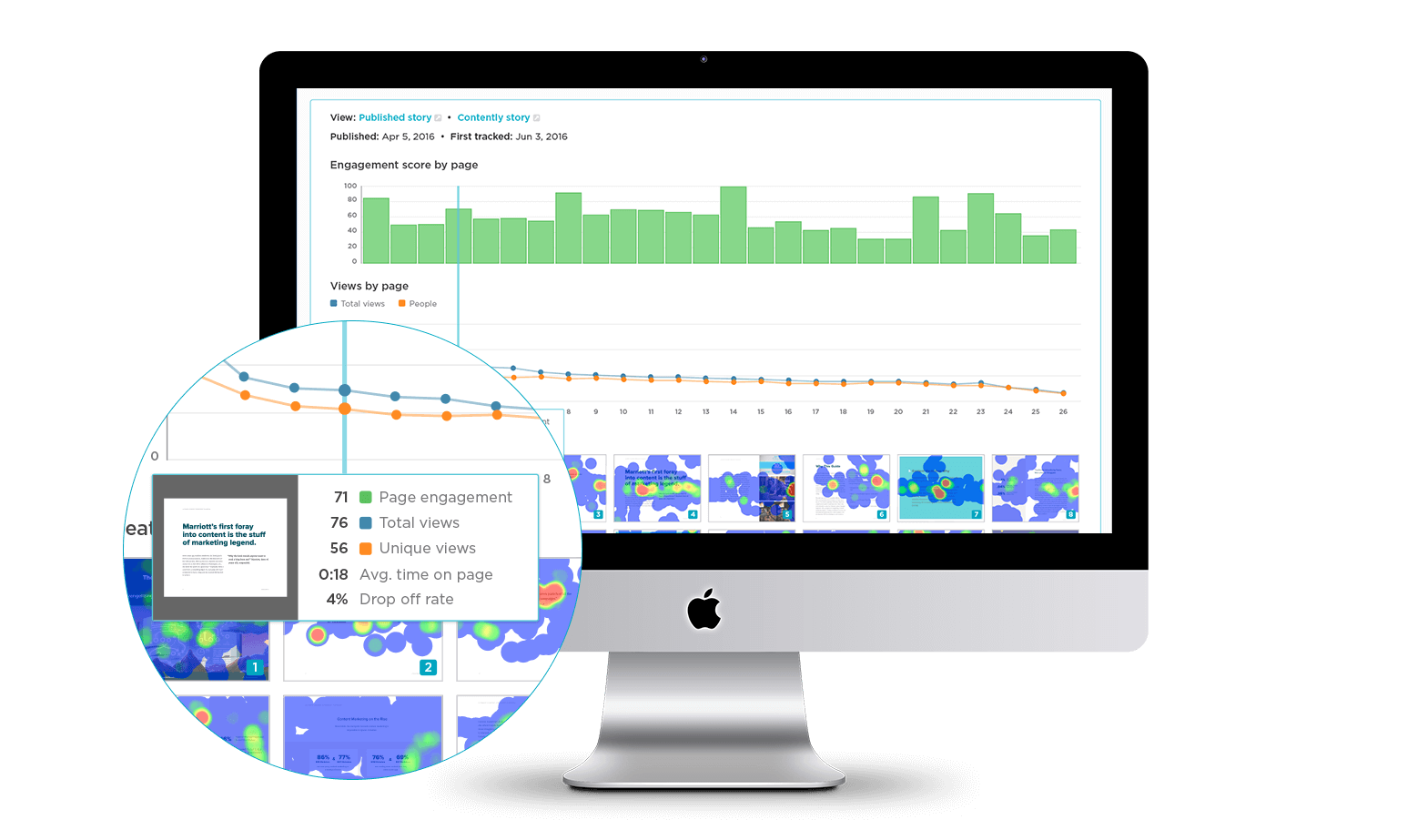It’s no secret that effective marketing requires a well-oiled content machine. But how do you organize all of that content and measure its effectiveness? There are two options: content management systems (CMS) and content marketing platforms (CMP). Whether you realize it or not, you probably use a CMS daily—your company’s website. So, does that mean you don’t need a CMP if you have a CMS? Not necessarily. Let’s explore the differences.
1. What is the difference between a CMS and CMP?
Let’s start with the definitions. A CMS software application helps users create, edit, and publish digital content without coding expertise. This often encompasses website platforms like WordPress. A CMS typically has two main components: a content management interface (CMI) and a content delivery platform (CDP). The CMI creates and manages digital content, while the CDP delivers the content to end users. So what are the benefits? With a CMS, you can:
- Manage large amounts of content
- Collaborate with other users
- Create an efficient publishing process
A CMP software application helps users plan, execute, and measure their content marketing campaigns. A CMP typically has three main components: a campaign management tool, a content library, and analytics. While the campaign management tool is used to plan and execute campaigns, the content library is a repository for all your digital assets. The analytics tool is used to track campaign performance. What are the benefits of a CMP? With a CMP, you can:
- Centralize all of your marketing efforts in one place
- Track your campaign performance
- Scale campaigns as your business grows
A CMS helps you manage and publish digital content, while a CMP helps you plan, execute, and measure content marketing campaigns.
2. Do you need a CMS or a CMP?
It depends on your use case. Companies typically use a CMS to organize content assets. Large organizations can use it to house many different types of content, such as text, images, videos, and audio files. Smaller companies use a CMS when they need a central location to store and distribute content online.
A CMS provides a centralized location for all of your organization’s content. This makes it easy for multiple users to collaborate on projects and ensures version control. Another key benefit is the ability to customize. Many CMSs enable users to add plugins or integrations that add value to content management, like customizing meta descriptions and titles, adding image alt text, and optimizing page load times.
However, CMSs also have their disadvantages. The most prominent is maintenance. A CMS needs to be updated regularly to avoid putting your website and business at risk. You’ll have to hire someone to update and maintain the site or contract the work to a third party. Another disadvantage is the hidden costs. To get the functionality you need, you may have to pay for a plugin or two instead of using the free version you originally planned to use.
On the other hand, CMPs are typically used by organizations with more complex content operations and are helpful to help map revenue back to content production. CMPs are extremely useful for understanding what topics work well for which audiences. This can help you plan out your editorial calendar strategically for maximum impact.
One of the main advantages of using a CMP is the ability to create content calendars that look at entire projects or campaigns. CMPs also have built-in analytics and reporting tools to help you track progress and improve results over time.
The biggest drawback to using a CMP is the cost. CMPs typically offer more robust features, functionality, and services than their CMS counterparts, so they are often significantly more expensive.
When should you use a CMS versus a CMP?
It depends on your team structure and goals. A CMS may be the best fit if you only need a place to manage your content distribution. However, a CMP may be a better investment if you’re looking for more comprehensive functionality and content marketing support.
It’s possible you need both a CMS and a CMP to effectively manage all aspects of your organization’s digital content strategy. (And good news! The two can work together exceptionally well.)
3. How much will a CMS or CMP cost, and is it worth the investment?
The cost of a CMS or CMP varies depending on the size and needs of your business. However, a CMP is generally more expensive than a CMS.
A CMS is more valuable if you want to streamline your content distribution and maintain a single source of truth for document storage. In general, a CMS facilitates the collaboration between users in a given work group, allowing them to create, edit, publish, and distribute content from a central location.
A CMS addresses the needs of both content creators and consumers by providing an intuitive interface for creating and managing digital content and tools for searching, filtering, and retrieving that content. A CMS also offers features for managing website users and permissions, optimizing website performance, and integrating with other enterprise systems.
In contrast, a CMP is focused solely on content marketing campaigns. It includes features such as social media integration and analytics tools that help you track the performance of your content. If you are more interested in the impact of content on marketing performance, then a CMP may be the better option over the long term.
4. What type of platform is right for me?
Choosing the right CMS for your business website can be difficult with so many options available. However, there are a few factors to consider that can help you narrow down the field:
- Open source or proprietary? Open-source CMS like WordPress, Joomla!, and Drupal are free to download and use, and they offer a wide range of templates, features, and extensions. A proprietary CMS like Adobe, Sitecore, Oracle, etc., tend to be more expensive, but they often offer more robust functionality out of the box.
- Do you need all the bells and whistles? If you have a small website with only a few pages of content, you may only need some of the bells and whistles offered by a comprehensive CMS. Even mid-sized organizations use WordPress to manage site content. However, if you have an enterprise with complex website functionality or extensive user management needs, you’ll want to choose a platform that can grow with you.
- Get input from other businesses. Talk to other companies that have used the CMS you’re considering to get their feedback on ease of use, customer support, etc. Choosing the right CMS for your business website can be daunting, with so many factors to consider. However, if you take the time to evaluate your needs and research, you can be confident that you’ve selected the best platform for your business.
If you’re looking for a CMP, you’re in the right place. Contently is a CMP that ranks in the top 10 for both organic search traffic and the number of rave reviews on G2 Crowd, a leading platform for business software reviews. In terms of features, Contently offers a wide range of options for content strategy, creation, optimization, distribution, and measurement.
Contently provides a suite of tools to help writers research, create, and edit articles, as well as scale their teams with pre-vetted, award-winning talent. Contently delivers a platform for integrating content into email newsletters, social media campaigns, and websites. With its robust analytics platform, marketers can easily measure their content marketing campaign performance.
If you want to take your content marketing strategy to the next level, you need to start using a SaaS tool to do it. These platforms will help you save time and money while creating better-quality content that resonates with your target audience.
Sign up for our monthly demo to learn more about our CMP and see how it can benefit your content marketing efforts.
The post Ask a Content Strategist: Do I need a CMS or a CMP? appeared first on Contently.








Your article gave me a lot of inspiration, I hope you can explain your point of view in more detail, because I have some doubts, thank you.